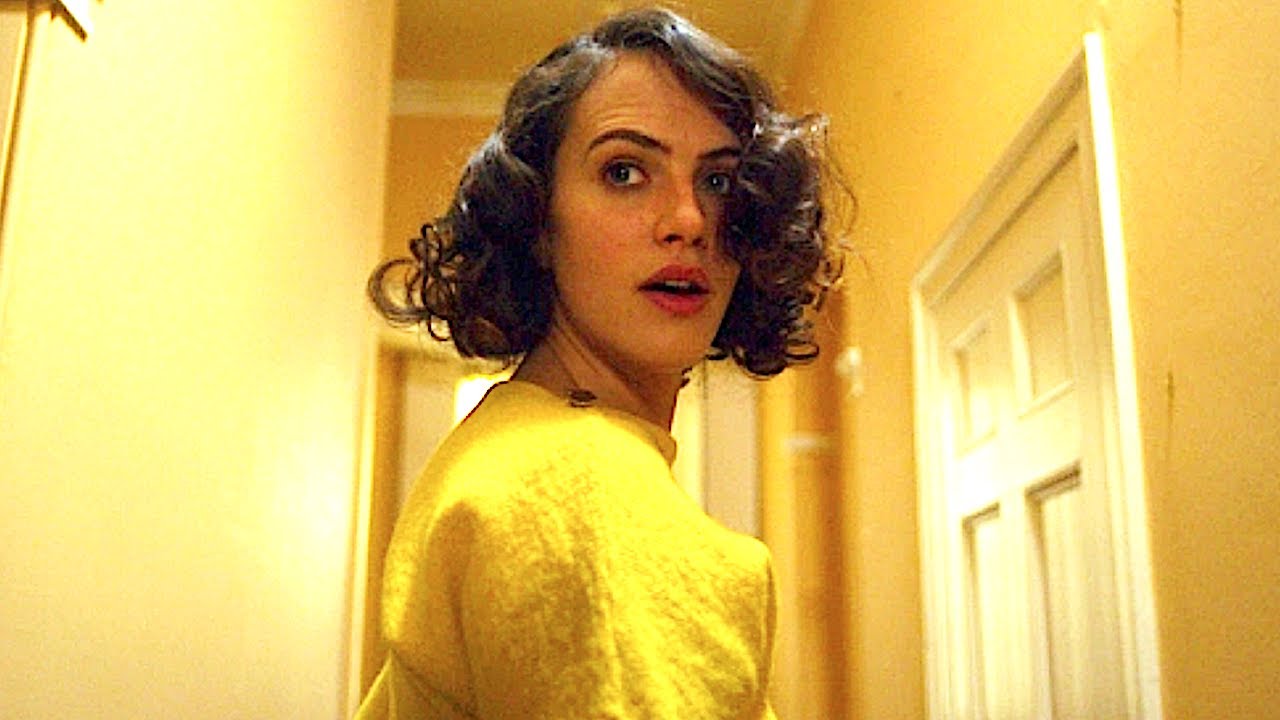What to Watch Verdict
'The Banishing' succumbs to the pressures of its own narrative by introducing ideas that aren't sufficiently explored despite its quite frightful haunted house approach.
Pros
- +
🥃 Sean Harris is a class-act kook.
- +
🥃 Mirrors are freaky.
- +
🥃 Multifaceted horrors.
Cons
- -
🥃 Cuts its own narrative off.
- -
🥃 Familiar, no doubt.
- -
🥃 Minimizes its inner explorations.
In The Banishing, Christopher Smith ditches offshore time-loops (Triangle) and deadly office outings (Severance) for "the most haunted house in England" if marketing proclamations are to be trusted. It's quite the selling point considering Smith's pedigree and horror-proficient chameleon abilities, marking yet another fresh subgenre excursion for the filmmaker. Although, this is more of a departure for Smith than usual—David Beton, Ray Bogdanovich, and Dean Lines notch screenplay credits despite Smith almost exclusively serving as writer and director on prior projects. It'll be apparent to anyone familiar with Smith's catalog since The Banishing is a more ordinary paranormal story than one might assume the ambitiously-inclined Smith would imagine.
It's dependably structured and rather spooky but plays safe when emphasizing folkloric theology and fascist undertones that uphold this otherwise predictable ghouls-and-gasps template.
In 1930s England, father Linus (John Heffernan) is summoned to replace a priest who's vacated his quaint and rural post. The incumbent pastor's wife Marianne (Jessica Brown Findlay) and daughter Adelaide (Anya McKenna-Bruce) move into a rather lavish estate that's far larger than the family requires. Linus' superior Malachi (John Lynch) states the previous tenants fled for a change of scenery, but local occultist Harry Prince (Sean Harris) insists an unspoken evil is to blame. Surely the church wouldn't endanger one of their own and two additional innocents, would they?
In a way, The Banishing is playing to its audiences—those who demand easily accessible spectral hauntings without much fluff. Marianne becomes the de facto central protagonist since she's primarily left behind while Linus goes about his pastoral duties, and her interactions with escalating supernatural incidents play unsettling hits. Mirrors become a doorway into alternate universes as reflections act independently while misguiding echoes of vocal commands bounce around abandoned brick basement corridors now reopened by Marianne. Smith commands all the boogey-bumps we'd expect after nightfall, between cloaked aggressors who appear in a flash or the breaking of Marianne's psyche as her new home projects visual tricks. As Linus slugs liquor and drunkenly banters about his insane wife, Marianne tumbles down a rabbit hole of inexplicable from-beyond creepiness that'll stir an atmospherically alarming rise.
Where The Banishing stumbles is in presuming audiences don't require development beyond a priest's blind faith, ignoring obvious red flags in terms of corruption or what motivates the mansion's hooded assailants. There's so much left unexplored between Hitler's ongoing rampage outside UK borders, fears of German meddling in Christianity's higher powers, and misogynistic assertions of monks punishing pregnant sinners. As the film gains momentum—while Marianne begrudges Linus and employs the help of loony-toony Harry Prince—narrative intrigue comes to a screeching halt by way of a hasty finish. There's such power in Marianne's investigation and vocal denouement of coverups, which weakens once it becomes apparent how the film we're watching uses Nazi symbols and horrific gendered atrocities as window dressings. I'd pose the word "incomplete" and note where the previous mention of "ordinary" rings truest.
That's not to distract from some rather proficient tortured performances, most notably from Jessica Brown Findlay's unflinching mother and Sean Harris' extravagant demonic combatant. The Banishing is a less excitable brand of horror driven by characters, lead by Findlay's defense against trauma, whether that's a husband who'd instead honor God's chaste ways or a daughter—playing with "OH HELL NO" dolls—screeching cruelness only an adolescent child can. Findlay grounds her character's agony in emotional lashes to emphasize a stronger interrogator of bloody-eyed nightmare figures or Harris' pub-loving blaspheme. Harry Prince is a phenomenal turn for the fiery-haired man against religion who acts as a liberated contrast to John Heffernan's uptight preacher, as Harris stresses unbridled intimacy versus Heffernan's repression and stony guard.
It's difficult because The Banishing establishes itself with conviction but loses interest in its relenting uniqueness. By delivering what general audiences might desire, outside viewers aching for grander swings into Hitler's fantastical cult obsessions will be left underwhelmed. No filmmaker will ever achieve unanimous approval, but Christopher Smith feels like he's playing to the wrong crowd. There's plenty to fear and enough pre-The Conjuring inspirations to exist outside formidable competition, yet not enough to generate overwhelming reactions. If only scenes didn't present themselves as a period-piece with a cursory interest in its period, maybe thrills and chills could be described at a "premium" instead of this reputable-enough summoning that asserts agency only to tighten reigns at the worst instant.
The latest updates, reviews and unmissable series to watch and more!
The Banishing will hit Shudder April 15th.
- Shudder Review
- The best Shudder exclusives you can stream right now
- The most underrated horror streaming on Shudder
Matt Donato is a Rotten Tomatoes approved film critic who stays up too late typing words for What To Watch, IGN, Paste, Bloody Disgusting, Fangoria and countless other publications. He is a member of Critics Choice and co-hosts a weekly livestream with Perri Nemiroff called the Merri Hour. You probably shouldn't feed him after midnight, just to be safe.


